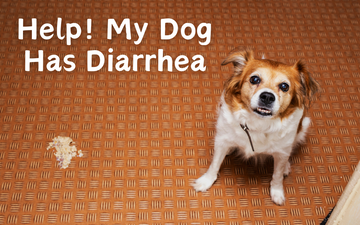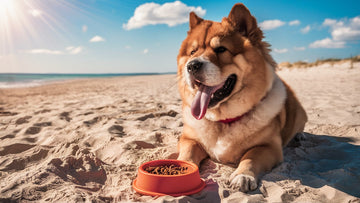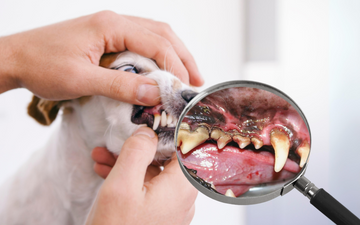
Dealing with diarrhea in dogs can be a real head-scratcher, leaving you worried and unsure about what to do next. But it's essential to understand that diarrhea itself is not a disease; it's a signal that something's wrong with your furry friend's health. This common issue can stem from various causes.
Symptoms of diarrhea.
You'll know your dog has diarrhea when you see loose or watery stools happening more frequently and in larger quantities than usual. It's crucial to remember that diarrhea is often a symptom of an underlying problem rather than a problem on its own.
What can be the Cause of diarrhea?
So, what could be causing your dog's tummy trouble? Well, it might be something as simple as a dietary indiscretion – maybe they've been rummaging through the trash or snacking on something they found on the ground. Ingesting toxic substances can also lead to diarrhea. Some dogs develop food allergies, while others eat things they shouldn't, causing gastrointestinal distress. Additionally, health conditions like liver disease or bacterial and viral infections can be culprits.
Parasites, especially in young puppies, can also irritate their tummies.
Just like people, stress, anxiety, or excitement can upset your dog's stomach. Certain medications, antibiotics, and toxins can trigger diarrhea too. Oh, and milk often doesn't suit many dogs.
What to do?
If your dog's energy levels are normal, they're eating fine, there's no vomiting, and they're up-to-date on vaccines, you can try some home treatment.
Give them a comfy spot to rest and withhold all food – that means no treats or regular meals. Offer small sips of water or ice cubes if there's no vomiting, to make sure your pup stays hydrated.
After the first 12 hours of fasting, you can introduce bland dog food like plain, boiled, boneless, skinless chicken and rice in small portions throughout the day. Gradually transition back to their regular diet over several days.
If you suspect your dog ingested something toxic or a foreign object, or if they seem weak and refuse to eat, it's time for a vet trip. Vomiting, especially more than once, is a concern. Always consult a vet if you notice any blood in the stool or if diarrhea persists for more than 24 to 36 hours despite home remedies. Black or tarry stools, straining without much result, pale gums, a painful and bloated belly, or the presence of worms in stool or vomit are all reasons to make an appointment with your pooch’s doctor.
Dealing with a dog's diarrhea can sometimes be straightforward, while other times it leaves you scratching your head. The bottom line is that when you're worried about your pet's health, always consult your veterinarian. Never administer human medications without their guidance, as many can be harmful to dogs. Remember, our furry companions can't express how they feel in words, so when in doubt, it's better to be safe and seek expert advice.





